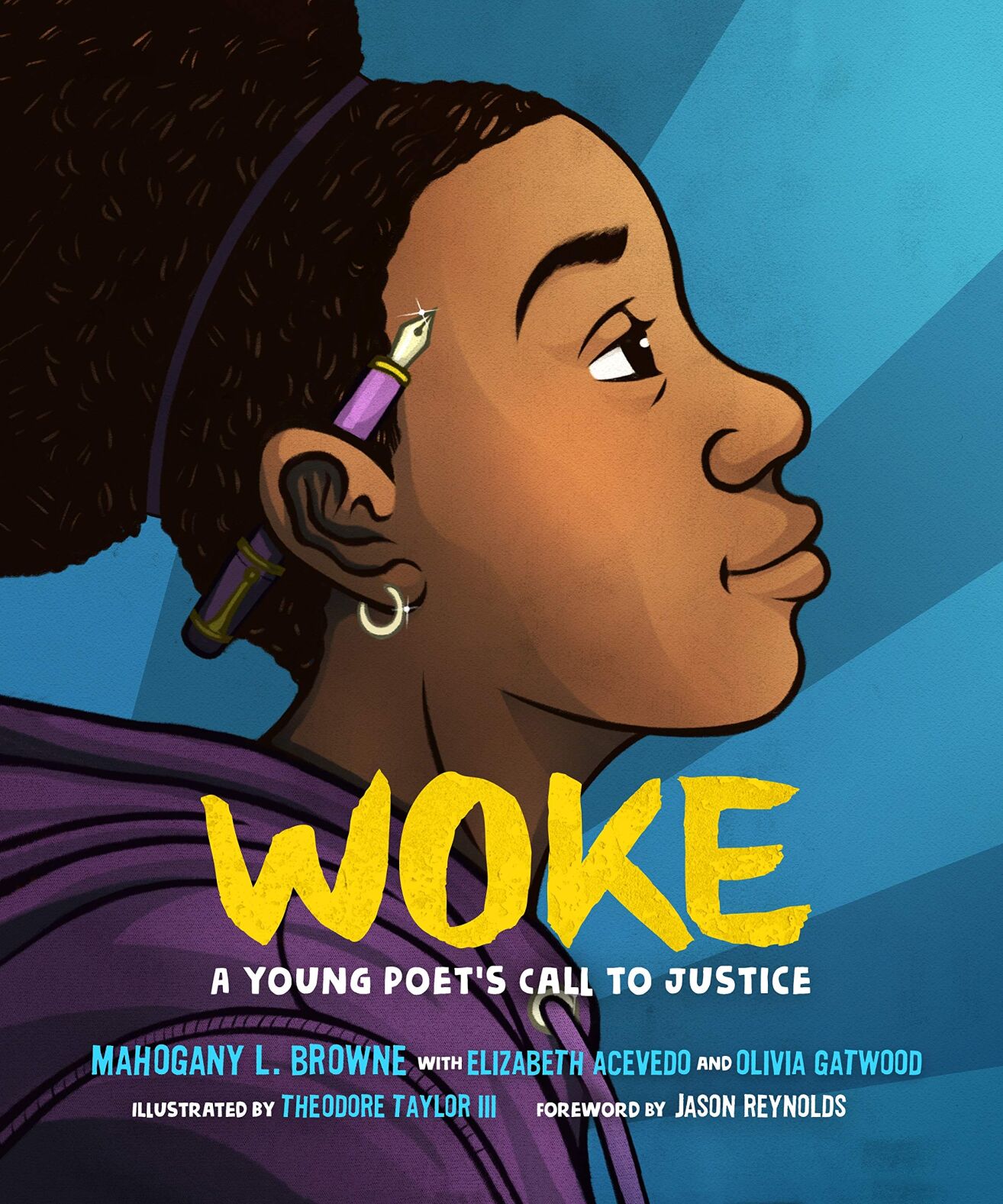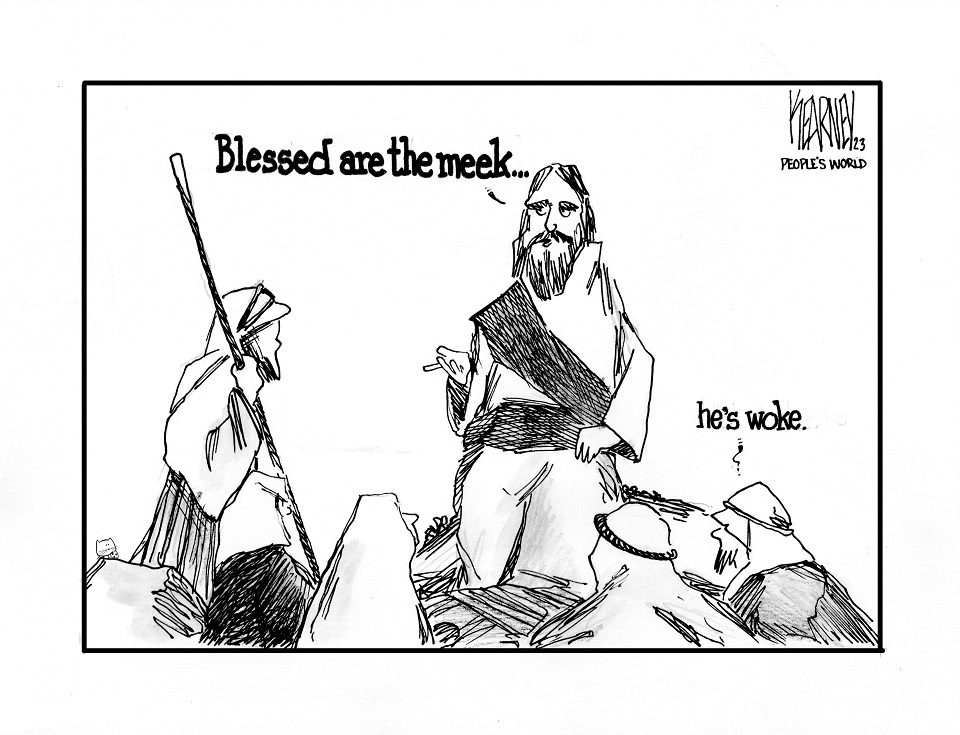Have you ever stumbled upon a heated online debate about a celebrity’s past actions, or witnessed the swift downfall of a public figure after a controversial statement? These instances, often labelled as “cancel culture” and fueled by the perceived actions of a “woke mob,” have become increasingly prevalent in our digitally connected world. But what exactly do these terms mean, and how do they shape our understanding of social justice, online activism, and accountability?

Image: www.miamitimesonline.com
Deciphering the complexities of these terms requires a nuanced understanding of their origins, their evolution, and their impact on public discourse. This article will explore the concepts of “woke mob” and cancel culture, delving into their historical roots, their manifestations across various platforms, and the ongoing debates surrounding their potential benefits and drawbacks. By examining the various perspectives on these social phenomena, we aim to provide a comprehensive and insightful analysis, encouraging readers to critically engage with these powerful forces that have come to define our contemporary cultural landscape.
The Evolution of “Woke”
To understand “woke mob,” we must first grasp the origins of “woke.” The term, rooted in African American Vernacular English (AAVE), originally signified awareness of racial injustice and systemic oppression. It gained prominence during the Civil Rights Movement and became a rallying cry for social justice advocates.
However, in recent years, “woke” has evolved into a broader term encompassing awareness of various social injustices, such as gender inequality, LGBTQ+ discrimination, and environmental issues. This expanded definition, while embracing a more inclusive approach to social justice, has also become a subject of contention, leading to the emergence of the “woke mob” concept.
The “Woke Mob”: A Contested Term
The term “woke mob” carries a distinctly negative connotation, often used by critics to describe a perceived group of individuals who engage in excessive online activism, promoting what they see as overly sensitive or politically correct views. The “woke mob” is often portrayed as relentlessly pursuing the cancellation of individuals deemed problematic for their past actions or statements, regardless of context or attempts at atonement.
This depiction, however, is often exaggerated and ignores the complex dynamics at play in online activism. While some instances of online outrage might appear excessive, it’s important to acknowledge the real-life consequences of harmful actions or statements, particularly when uttered by those in positions of power or influence. The “woke mob” label risks dismissing valid concerns about discrimination and inequality while portraying online activism as solely driven by negativity and censorship.
Cancel Culture: A Spectrum of Responses
Cancel culture, closely intertwined with the “woke mob” discourse, refers to the practice of withdrawing support for public figures, businesses, or other entities deemed problematic by a significant online or public audience. This “cancellation” can manifest in various ways, from boycotts and social media campaigns to calls for resignation or the withdrawal of platforms like book deals and performance opportunities.
Unlike the often-condemned “woke mob,” cancel culture encompasses a spectrum of responses to problematic behavior. Some instances involve genuine calls for accountability and societal change, while others might be driven by anger, mob mentality, or a desire for immediate gratification. This spectrum calls for careful and nuanced analysis, recognizing the potential for both positive and negative outcomes associated with cancel culture.

Image: www.peoplesworld.org
The Debate Over Cancel Culture
The debate over cancel culture is often framed as a clash between free speech and accountability. Proponents of cancel culture argue that it’s essential for holding individuals accountable for their actions and creating a more inclusive and just society. They assert that cancel culture serves as a powerful tool for challenging harmful narratives and promoting social change, often highlighting historic examples of marginalized voices who were silenced for speaking out against injustice.
Opponents, however, argue that cancel culture stifles free speech and creates a climate of fear, discouraging open dialogue and critical thinking. They emphasize the potential for unfair judgment, misinterpretation, and the silencing of dissenting voices, particularly those belonging to minorities who are already marginalized and vulnerable to online attacks.
Navigating the Gray Areas
The complexities of “woke mob” and cancel culture underscore the importance of critical thinking and nuanced analysis. It’s crucial to avoid simplistic binaries and acknowledge the diversity of individuals and motivations contributing to these social phenomena.
While some individuals may engage in online outrage fueled by anger or personal vendettas, others genuinely advocate for social justice and seek to hold those in positions of power accountable for their actions. It’s essential to distinguish between genuine efforts to promote change and instances of mob mentality or unfair targeting.
What Is Woke Mob And Cancel Culture
Moving Forward: Building Bridges and Fostering Dialogue
The debate surrounding “woke mob” and cancel culture can be highly polarized, often creating a divide between those advocating for social justice and those concerned about free speech. Moving forward, it’s crucial to foster dialogue and understanding across these divides, recognizing the legitimate concerns of both sides.
Open communication and a willingness to engage with opposing viewpoints are essential for building bridges and achieving meaningful progress. By fostering an environment where diverse perspectives are heard and respected, we can work towards a more just and equitable society while safeguarding the fundamental values of free speech and open dialogue. This requires engaging with complex issues, recognizing the nuance of online activism, and seeking opportunities for constructive dialogue rather than condemnation and division.
In a world increasingly shaped by digital platforms, understanding the complexities of “woke mob” and cancel culture is essential for informed and responsible participation in public discourse. By embracing critical thinking, fostering respectful dialogue, and recognizing the potential for both positive and negative consequences, we can navigate these challenging social phenomena and strive for a more equitable and just future.






